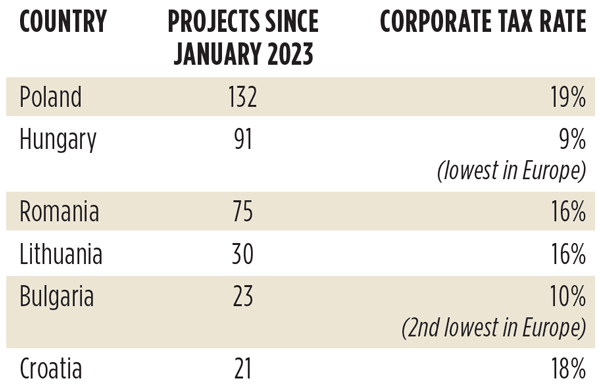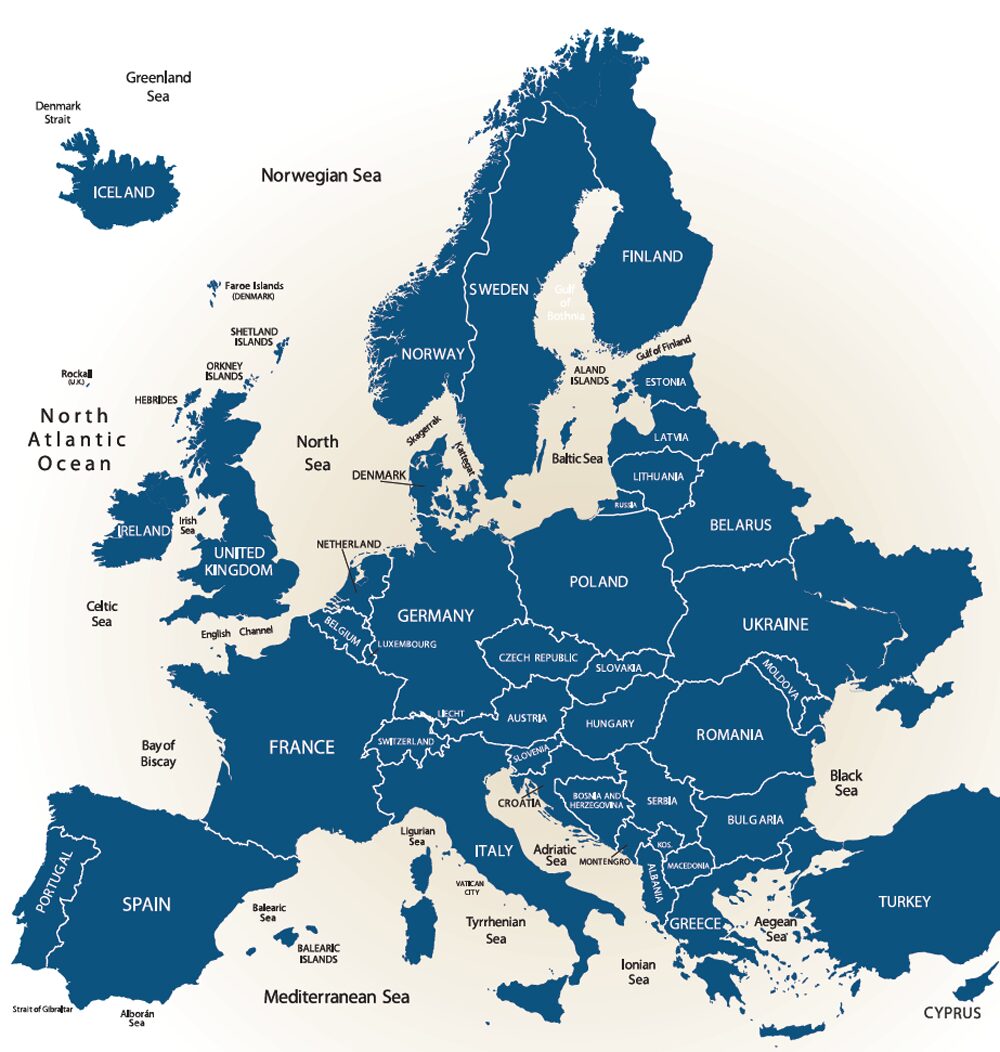Eastern Europe Electrifies
The Tax Foundation in January updated a map of statutory corporate income tax rates across European OECD and EU countries. Six of the lowest 10 rates were in countries located in Central and Eastern Europe, led by Hungary with a 9% rate and Bulgaria at 10%.
How correlated are corporate facility investment and low corporate income tax rates? Between January 2023 and mid-February 2025, those six countries have welcomed more than 370 major corporate end-user facility investment projects, according to Site Selection’s Conway Projects Database. Here is how the totals break down:
Sometimes the low-tax countries are pitted against one another. Such is the case with Belgium’s Avesta Battery & Energy Engineering, which in 2023 had announced a billion-dollar-plus advanced lithium iron phosphate (LFP) battery cell plant in Romania, but by June 2024 had decided “to end its collaboration on the project in Romania” and locate the 5-gigawatt-hour factory in a yet-to-be-determined location in one of two other countries. “As the facility scales, it is projected to reach a capacity of 20 GWh, positioning ABEE at the forefront of the European battery revolution,” the company said. “ABEE’s decision on the gigafactory location will be influenced by factors such as infrastructure, workforce availability and governmental support. The company aims to finalize the location in the coming months and commence construction shortly thereafter.”

The project is separate and distinct from a plan announced in December 2023 by Bulgarian Prime Minister Nikolai Denkov and Avesta CEO Noshin Omar that involves an investment of €1.1 billion over the next three years in a gigafactory in Stara Zagora, a recycling facility in Burgas and an R&D hub in Plovdiv. The overall project, dubbed “BulgaPower,” is projected to launch with a capacity of 10 gigawatt-hours, expandable to 20 gigawatt-hours at full capacity. Omar, a former professor at the Free University of Brussels, founded the company in 2019. The company’s only other location besides Belgium is a battery plant in TIDZ Kichevo, one of 14 free economic zones in North Macedonia, where construction kicked off in December. According to the government’s release, Avesta CEO Aleksandar Golaboski said the initial investment of €10 million, creating 120 to 200 jobs, is projected to expand to €40 million and as many as 600 new jobs.
Among the most recent projects to land in Hungary is a 900-job EV plant from China’s Xinzhi. It’s the latest in a series of major Chinese corporate investments in the Hungarian EV supply chain, including two battery plants from CATL (Contemporary Amperex Technology Co., Limited) in Debrecen’s Southern Economic Zone (the first coming online in 2025) and BYD’s first European vehicle plant in Szeged, which is expected to assemble its first car by November 2025.

